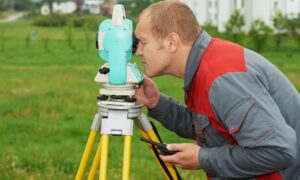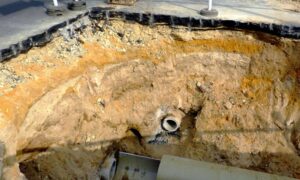
Before any construction project starts—whether it’s a new home, a commercial building, or a roadway—one of the first and most important steps is a topographic survey. This type of survey maps the natural and man-made features of a piece of land. It shows elevation changes, trees, buildings, slopes, and even drainage patterns. Without this information, builders could run into costly delays or design problems.
What Is a Topographic Survey?
A topographic survey is a detailed map of the land’s surface. It shows not just the shape of the ground, but also things like hills, valleys, fences, roads, and utilities. Surveyors use tools like GPS, total stations, and sometimes drones to collect this data.
This survey helps architects and engineers understand the land before they design anything. It’s also useful for property owners who want to know what’s on their land.
Why It Matters in Construction
Construction teams rely on accurate land data to plan foundations, drainage, and building placement. A topographic survey helps them:
- Understand slopes and elevation changes
- Plan for proper drainage
- Avoid cutting into hills or building on unstable ground
- Design with the land, not against it
Builders and developers often use topographic surveys for property development to avoid these issues early. Without this step, a project can face water damage, foundation shifts, or the need for expensive redesigns after construction begins.
Local Requirements in Georgia
In places like Columbus and Newnan, GA, a topographic survey may be required by local governments before a construction permit is approved. These surveys help city planners check that your project meets zoning rules and won’t cause flooding or other issues.
Working with a professional land surveyor in Georgia who understands Georgia’s terrain and rules can help keep your project on track.
Problems You Can Avoid
Getting a topographic survey early can prevent many common problems, such as:
- Grading surprises that increase costs
- Drainage failures that cause long-term water damage
- Design changes because the land doesn’t match the blueprints
- Legal issues if the land overlaps with neighboring property
Who Uses Topographic Surveys?
Many professionals rely on topographic surveys, including:
- Architects
- Engineers
- Real estate developers
- Contractors
- Government planners
Even homeowners planning major landscaping work can benefit from this survey.
Final Thoughts
Getting a topographic survey might seem like just another box to check, but it’s one of those steps that can save time, money, and stress down the line. Whether you’re building in Columbus, Newnan, or anywhere else in Georgia, knowing what’s under your feet—literally—can make all the difference. It’s a smart move that most experienced builders wouldn’t skip.





